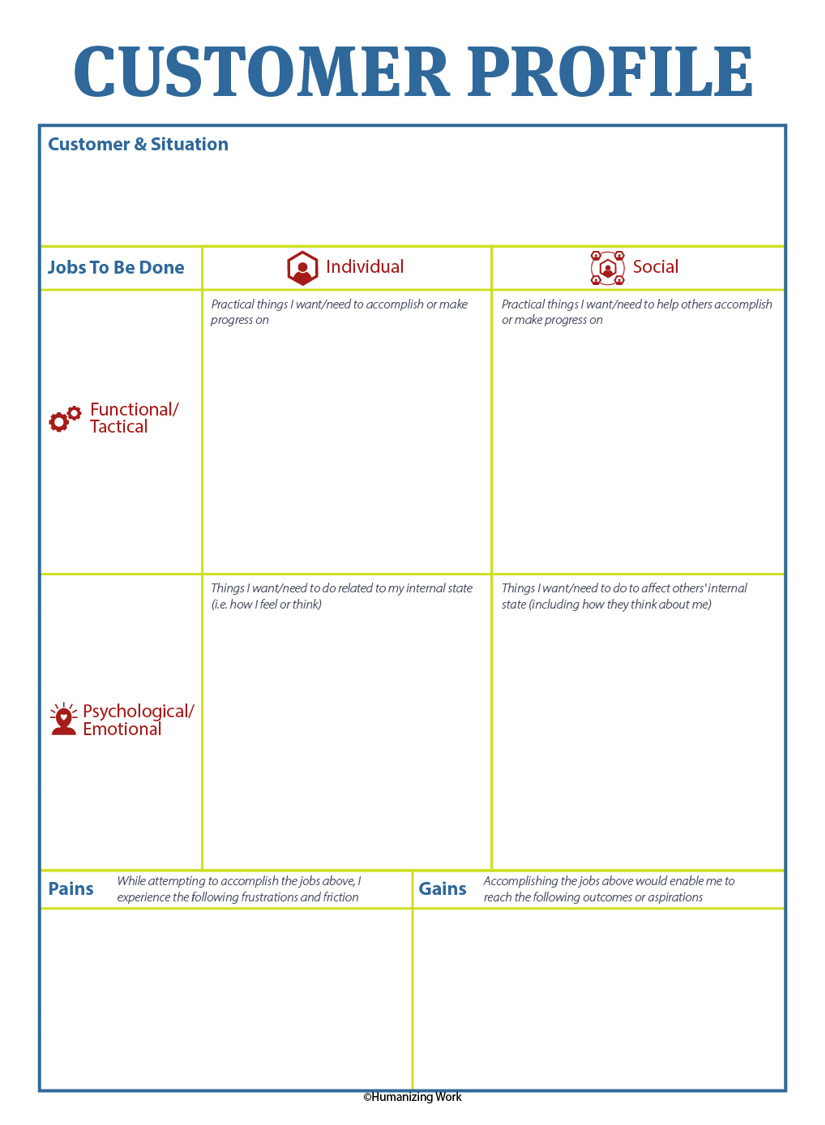A hard truth of product development is that people don’t want our products. They don’t want our services. They don’t want the features we’re so excited to ship. It’s not you. It’s just the nature of product development.
“But, Richard,” you may be thinking, “people buy products and services all the time.”
They do. But not because they want the product or service. Rather, people want what they want, they have their own goals and needs, separate from any products or services they might buy or use. And they’re willing to hire products or services that might help them get what they really want.
To give kind of a silly example: I didn’t wake up this morning thinking, “I’m really looking forward to using the search capability in Spotify this morning.” But I did wake up with Toto’s “Rosanna” thoroughly stuck in my head. And I was willing to “hire” the search capability in Spotify to help me achieve my goal of listening to the song to try to get it to stop looping in my brain. (Sorry if I just stuck it in your head!)
It’s the same thing with our products and services. No one really wants to take training—they want the skills and outcomes they’ll get because they took the training. Likewise with your products and services.
So, if you want to build things that your target customers eagerly and gladly buy and use, it’s critical to understand your target customers on their own terms, totally apart from how they interact with your solutions.
 What do they want to accomplish or make progress on in their life or work? Not just tactical things they’re trying to get done, but how do they want to feel? How do they want to impact other people? How do they want to be perceived? We hire products and services to help with all those things.
What do they want to accomplish or make progress on in their life or work? Not just tactical things they’re trying to get done, but how do they want to feel? How do they want to impact other people? How do they want to be perceived? We hire products and services to help with all those things.
What friction or pain do your target customers experience with their current solutions? How might you resolve some of those pains?
Understanding your customers in this way is a major theme in Humanizing Work’s Product Owner training. It doesn’t matter how good you are at building backlogs and splitting user stories if your backlog isn’t based on a solid understanding of what your customers actually want.
Join me next week for a 3-day, hands-on Product Owner workshop where we go deep into this kind of product management.
The workshop leads to a Scrum Alliance Certified Scrum Product Owner (CSPO) certification. But it’s not really about Scrum—Scrum is just a nice, minimal framework structuring complex product development.
We’ll mostly spend time on how to make product decisions in the face of complexity, how to understand and communicate about your customers and their needs, and how to build a great backlog so you can collaborate with a team to see your product vision become a reality. Both new and seasoned Product Owners have found the course valuable. Learn more and register here.
Last updated